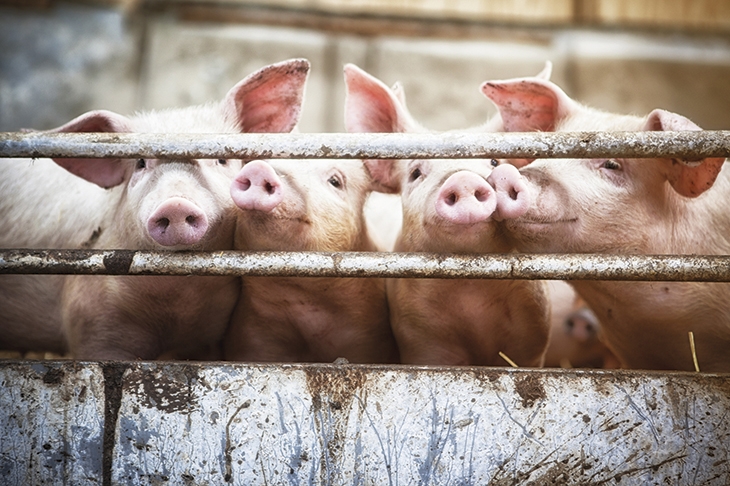The latest fight between the EU and the UK isn’t over vaccines, but molluscs. Brussels won’t grant Britain a special export health licence for the trade of ‘live bivalve molluscs’ unless they are purified first. The problem is, once they’ve been purified they have to be eaten within 48 hours, which gives them too short a shelf life to be practical for export.
This affects the trade of cockles, clams and mussels, but if the beleaguered British shellfish industry were to collapse, I think I’d be saddest about the oysters. Ours are some of the finest in the world. It’s no coincidence that three of London’s most famous restaurants — J. Sheekey, Rules and Wheeler’s — all began as oyster bars. Yet Britain is, for a maritime country, oddly uninterested in seafood. In part it’s a PR problem. The French are proud of their Fine de Claire oysters, and rightly so. Perhaps we should champion our native ones with the same enthusiasm.
If would be quite something if the EU’s obstinacy means ancient Romans had a better chance of getting hold of British oysters than modern Europeans. For the Roman historian Sallust, a decent oyster was about the only thing Britain had going for it. ‘Poor Britons,’ he wrote in 50 bc, ‘there is some good in them after all — they produce an oyster.’ A century later, after the Roman conquest, our oysters were a delicacy for the elite and were sent back to Rome across the Alps in barrels packed with snow and ice. Emperor Domitian was such a gourmet he could tell an English oyster from his first bite.
From the Middle Ages until the 20th century, oysters were for everyone. They were thrown in stews, stuffed in fowl, or minced and added to sausages — they were so cheap and plentiful that Samuel Johnson fed them to his cat. By the 1850s, 500 million were sold in Billingsgate Market each year. The poor ate them more in desperation than pleasure, as Sam Weller observes in The Pickwick Papers.
What changed? Two world wars and a succession of very cold winters nearly wiped out the native stocks. Water pollution also became a problem. The most dramatic incident was in 1902 when several guests at a banquet in Winchester died because their Emsworth oysters had been contaminated by sewage. Emsworth’s shellfish industry all but collapsed overnight.
The American food writer M.F.K. Fisher believed there are three kinds of oyster–eaters: ‘Those loose-minded sports who will eat anything, hot, cold, thin, thick, dead or alive, as long as it is oyster; those who will eat them raw and only raw; and those who with equal severity will eat them cooked and no way other.’ It’s the middle category for me. A fresh, raw, untouched oyster is in my mind the tastiest thing there is. I might apply a few drops of Tabasco sauce every third shell or so, as a way to vary the flavour, but that’s as far as I’ll go. When I see cooked oysters, I feel like Gollum shrieking at Sam’s stewed rabbits. Why mess with perfection?







Comments